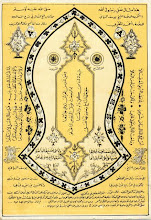
Assalamu alaykum
In the name of Allah, the Inspirer of truth.
'When you feel no shame, then do as you please.'
This hadith is not to be taken literally as if granting permission for one to do as he pleases. It is instead a warning that losing one's modesty will lead one to obeying the base and lowly desires of the self, which will lead one to commit sinful and immoral acts. See also hadith below
'Modesty is a branch of faith.' (Bukhari and Muslim from Abu Hurayra)
Hadith narrations mention that there are more than seventy branches of faith. Of these hayaâ [modesty, bashfulness, shyness] is specifically mentioned, affirming it as one of the most important branches. Hayaâ is an important means of restraining oneself from sin, and restraint from sin is one of the most important obligations of faith.
The type of hayaâ referred to in this hadith is the modesty that comes from faith and not the natural shyness in a person. It has been explained by the saying, 'For your Lord not to find you where He has prohibited you to be,' 'which is also part of ihsan or perfection of faith.'
'Abdullah ibn Mas'ud relates that one day the Messenger of Allah (upon him be peace) said, 'Be shy of Allah Most High as much as is His due. We said, 'All praise to Allah, we are shy of Him.' The Messenger (upon him be peace) said, 'That is not the point. Whoever is shy of Allah as much as is His due then he should protect his head and that which it comprises [i.e. mind, mouth, ears, etc.], his stomach and that which is adjoining it [i.e. preserve it from unlawful wealth and protect the private parts from the unlawful], and he should remember death and that which is to come after it, and whoever intends the hereafter should abandon the adornments of this world. Whoever fulfills these duties has been shy of Allah as much as is His due' (Musnad Ahmad).
[From Provisions for the seekers www.whitethreadpress.com]
Wassalam
Abdurrahman ibn Yusuf


